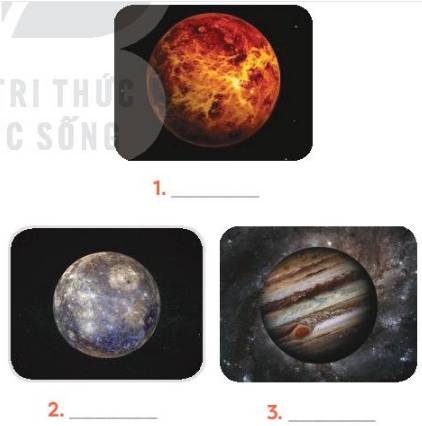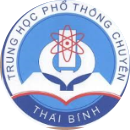Communication
Các câu hỏi tương tự
Work in groups. Take turns to talk about one of the three planets in 3.
Example:
I would like to tell you about Mercury. It is the smallest planet ...
Work in pairs. Make similar conversations with the following situations.
1. You are not sure about the possibility of water on Mars.
2. You doubt that one of your friends will get a good mark on the English test.
3. You are not sure if the weather will be fine tomorrow.
Read the information below and answer the questions that follow.Mercury - smallest and closest to the sun with no moon- very hot in the daytime but very cold at night- no at mosphere → no wind or weather on itJupiter - largest planet with about 63 moons- stormiest planet - third brightest object in the night sky Venus - hottest planet with no moon - nearly as big as Earth - often very bright in the early morning → people call it the morning star. 1. What planets have no moon?2. What planet is si...
Đọc tiếp
Read the information below and answer the questions that follow.
Mercury
- smallest and closest to the sun with no moon
- very hot in the daytime but very cold at night
- no at mosphere → no wind or weather on it
Jupiter
- largest planet with about 63 moons
- stormiest planet
- third brightest object in the night sky
Venus
- hottest planet with no moon
- nearly as big as Earth
- often very bright in the early morning → people call it the morning star.
1. What planets have no moon?
2. What planet is similar in size to Earth?
3. What planet is the smallest and closest to the sun?
4. What planet is called the morning star?
5. What is the largest and stormiest planet?
Listen and read the conversations. Pay attention to the highlighted sentences. (1) Nick: Do you think Mars may support life?Mark: Im not sure about it. Scientists are trying to find life there.(2) Mary: Do you think Ann will win tomorrow?Tommy: I doubt it. She injured her arm in a match last week.
Đọc tiếp
Listen and read the conversations. Pay attention to the highlighted sentences.
(1) Nick: Do you think Mars may support life?
Mark: I'm not sure about it. Scientists are trying to find life there.
(2) Mary: Do you think Ann will win tomorrow?
Tommy: I doubt it. She injured her arm in a match last week.







